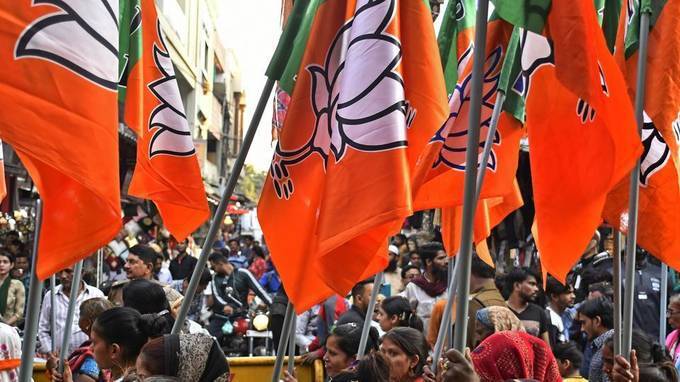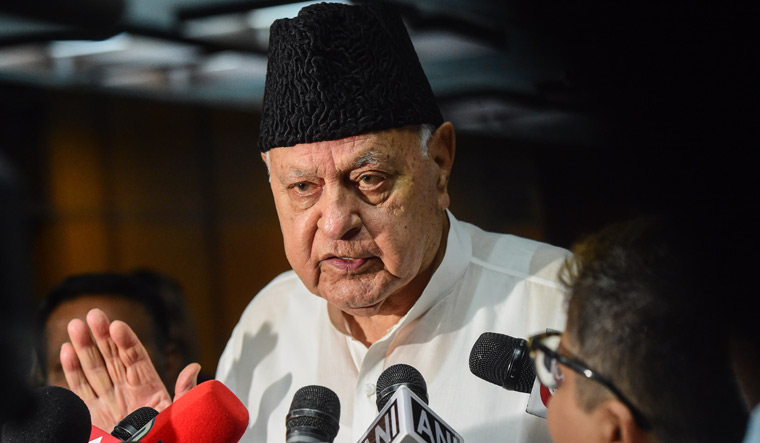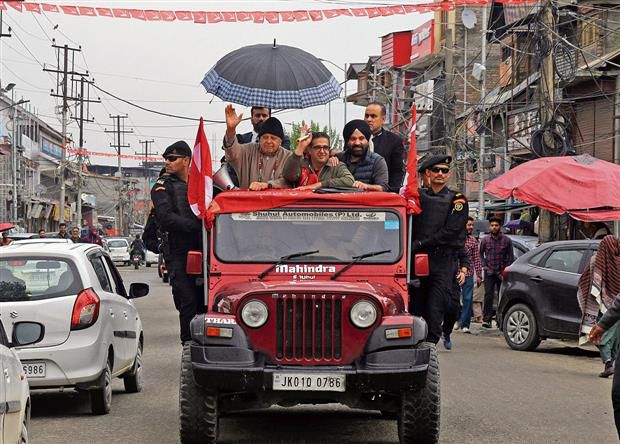As controversy over implementation of Goods and Service Tax (GST J&K refuses to die down, senior PDP leader Muzaffar Hussain Baig has said that if New Delhi refuses to ensure safeguards to protect the state’s fiscal autonomy and Article 370 under the new tax regime, then separation of the alliance partners, PDP and BJP, was a possibility. He blamed the government for its failure to create awareness about the GST, saying “some people” in the government who were responsible for “spreading the message” remained in deep slumber which allowed misunderstanding to creep in.
“The GST should not be implemented in the state in its present form. My proposal which provides safeguards to section 5 of J&K constitution as well as Article 370 is rational, practicable and achievable, but the question is whether the PDP and BJP which are part of the government are in unison on the issue and if Centre will take the suggestion of the state government seriously or not,” said Baig, who is the chairman of Consultative Group of political parties on GST. He made the remarks during an interview to Doordarshan on legal implications of the new tax regime.
Baig has suggested that when the GST is implemented in the state, the Article 246-A of the Constitution of India under which the government of India will impose the law should be preceded by the “rider” that the constitutional powers of J&K under Section 5 of the State Constitution shall remain intact so that the state government can exercise its powers on (tax) rates at any time. “The section 5 rider should be incorporated in the Presidential order which will be issued under Article 370 (for extension of the 101st amendment of Constitution of India to J&K). This mechanism will allow us to replace the law (GST) if we find that we are not benefitted by it,” he said.
He said there should be a provision that will make it mandatory on the GST Council, which has powers to decide the tax rates, to seek prior permission of the state government on tax proposal, under Article 370 in case the proposal isn’t acceptable to the State. “This way both Article 370 of Constitution of India (that accords special position to J&K) as well as constitutional autonomy under section 5 of J&K constitution are preserved,” asserted Baig, who is a senior PDP leader and a noted constitutional expert.
“Whether the Centre agrees to these suggestions, I don’t know, I have given my suggestions,” Baig said. “But my point is that the Centre should look at this with right intention and not oppose it. This is in the Agenda of Alliance that the present constitutional position of the state will be maintained. We will come to know when the proposal will go to the cabinet which comprises of BJP as well and if they don’t oppose it in the cabinet, that means the Centre will also have no problem with it,” said Baig. “If they (Centre) don’t agree, then how can state agree to it (GST) and then it can lead to separation (of PDP and BJP).”
But, Baig said, New Delhi should agree to the safeguards for both section 5 of J&K constitution and Article 370. “There will be bureaucratic hurdles but if there is understanding at political level, I believe that the Centre should agree to it,” said Baig. “If the two safeguards that I have suggested are taken care of, then for the first time in the history of J&K we will have a law that would protect the state’s autonomy.”
While Baig said the government’s move to invite a debate on GST was a “good step”, he said “some people” in the government who were responsible for creating awareness among people remained in deep slumber. “As a result people and traders are today out on roads apprehending the government is engaged in sellout over whatever autonomy is left now,” he said. “This is our mistake that we couldn’t carry right message to people.”
Baig said there was delay on part of the government to reach out to all stakeholders including political parties to develop a consensus on the matter. “Had we taken a step earlier, there would have been no misunderstanding. The consultation was started late and by then the fire had already started,” he said.
He said peoples’ apprehensions about the tax regime have roots in erosion the state has suffered in its autonomy at the hands of successive governments both at the state and New Delhi since 1952.
Baig said from 1952 when Sheikh Muhammad Abdullah was the prime minister to 1975 when he returned as the chief minister, the Article 370, which guarantees special status to J&K, has suffered erosions at the hands of successive regimes in the state as well as in New Delhi.
He said state’s accession with union of India was for defense, foreign affairs and communication. “We had many rights but one by one all of them were eroded whether it was 1952 constitutional order or 1965 when nomenclature of Sadr-i-Riyast was changed…in 1954 a lot of damage was done to the internal autonomy. This is the reason that today there is apprehension among people and people believe that every party which comes to the power works to save its chair,” Baig said.
He said the state can’t have its own taxation law under which it can collect the taxes on behalf of New Delhi. “It is impossible to have separate state law on GST. If we talk of bringing a separate law, the Centre will have to amend two chapters in the Constitution to delegate powers of taxation to the Jammu and Kashmir. It will become a huge political issue across the country. Besides, it will also entail amending Section 5 of J&K Constitution which can’t be done. More so, any attempt on fiddling with Section 5 will open a pandoras box which will have huge political ramifications for J&K in future,” he said.






